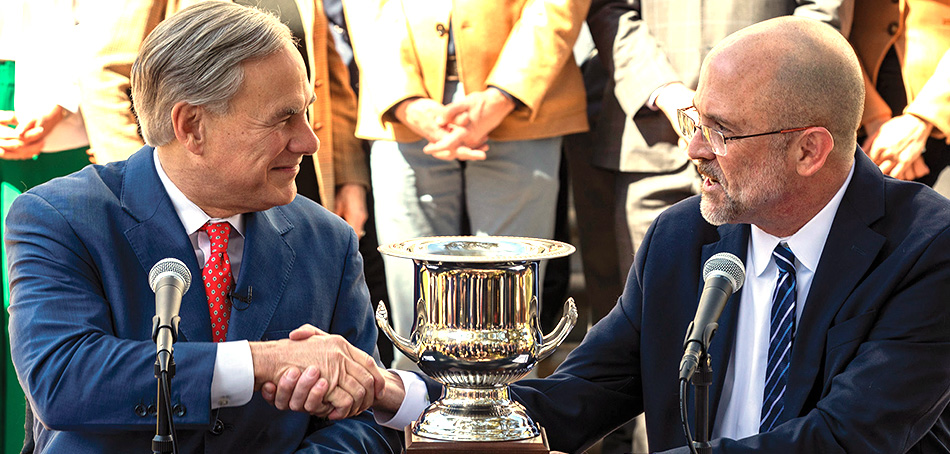Texas is changing its judicial landscape with the opening of new specialized Business Court divisions in September, following the enactment of House Bill 19 last year.
Signed into law by Governor Greg Abbott in June 2023, the legislation created statewide specialty business trial courts to streamline the resolution of business disputes. Abbott said the courts will provide an “efficient mechanism” for commercial litigation in Texas.
Dallas, Fort Worth, Austin, Houston, and San Antonio will host the first of 11 new Business Court divisions across the state.
The five urban center Business Courts are set to open in September 2024. According to a news release from the Office of the Governor, the move is expected to alleviate the burden on traditional courts and speed up litigation across the state. A statewide intermediate appellate court, the Austin-based Fifteenth Court of Appeals, which will handle appeals from the Business Courts, also opens in September.
Joining 30 other states with specialized business courts
The creation of six additional divisions serving more rural parts of Texas has been deferred to the 2025 Texas Legislature for approval and funding.
Texas joins nearly 30 states with some form of these specialized courts. Abbott says the new courts will allow Texas to continue to lead in creating a favorable business climate.
The governor and other advocates of the state’s new specialized Business Court system say it meets a need for the increasing volume and complexity of business litigation and could offer a more cost-effective dispute resolution for businesses.
Texas Business Courts jurisdictional model
The new Texas Business Courts will have jurisdiction over certain types of complex commercial disputes, including derivative actions, securities actions, breach of fiduciary duty cases, and business transactions where the amount in controversy exceeds specified thresholds—in general, $10 million, depending on the type of case. However, the courts will not handle medical malpractice, personal injury, or legal malpractice claims.
House Bill 19 also included provisions for the transfer of qualifying cases from district or county courts to the Texas Business Courts, helping ensure that cases benefit from the expertise of commercially focused judges.
“By appointing judges with commercial law expertise, we can provide a more predictable and efficient process for resolving business disputes, which is crucial for economic growth,” Governor Abbott said in a statement.
Abbott recently announced the appointments of judges to the divisions in Dallas and Fort Worth. The appointments, effective on Sept. 1, are for two-year terms, with a possibility of reappointment.
Dallas business court appointments
The First Business Court Division in Dallas will serve the counties of Collin, Dallas, Ellis, Fannin, Grayson, Kaufman, and Rockwall. Andrea Bouressa and William “Bill” Whitehill have been appointed as judges.
Bouressa currently serves as judge of the 471st Judicial District Court and has been recognized for her contributions to the legal community. Whitehill, appointed alongside Bouressa, is a former justice of the Texas Fifth Court of Appeals and a member of Condon Tobin Sladek Thornton Nerenberg PLLC.
Fort Worth business court appointments
The Eighth Business Court Division in Fort Worth will serve the counties of Archer, Clay, Cooke, Denton, Eastland, Erath, Hood, Jack, Johnson, Montague, Palo Pinto, Parker, Somervell, Stephens, Tarrant, Wichita, Wise, and Young. Jerry Bullard and Brian Stagner have been appointed as judges.
Bullard is a shareholder and attorney with Adams, Lynch & Loftin, P.C., bringing over 30 years of experience in state and federal court litigation. Stagner is of counsel at Kelly Hart & Hallman LLP and an adjunct professor at Texas Christian University.
The appointments are part of a larger group of judicial appointments to Texas’ new Business Courts in Houston, San Antonio, and Austin, made by Governor Abbott this month.
Earlier this year, Texas Lawbook noted that at least twenty individuals applied for appointment to the new business courts and the 15th Court of Appeals.
![]()
Get on the list.
Dallas Innovates, every day.
Sign up to keep your eye on what’s new and next in Dallas-Fort Worth, every day.






























![Barbara Bush, co-founder and board chair of the nonprofit Global Health Corps, right, in conversation with Shena Ashley, vice president of Capital One community impact and investment and president at the Capital One Insight Center. [Photo: Capital One Reimagine Communities Summit 2024]](http://s24806.pcdn.co/wp-content/uploads/2024/06/CO.BarbaraBushPhoto3RCS.2024-crop.jpg)




































